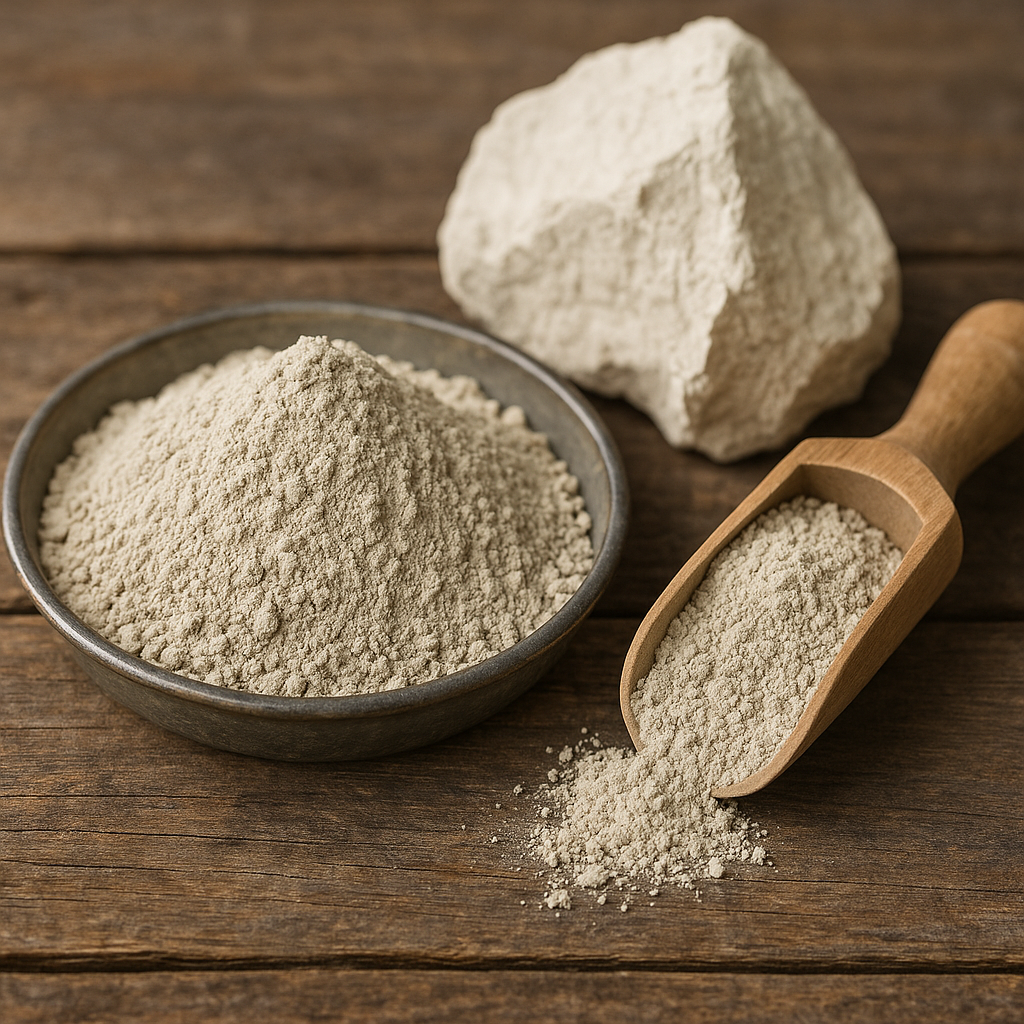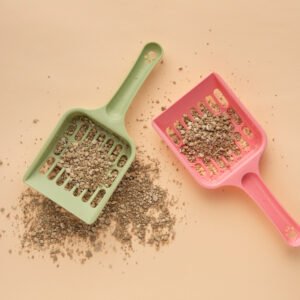Have you ever wondered why some drilling operations run smoothly while others face constant challenges with borehole stability and fluid loss? The answer often lies in the quality of bentonite used in drilling fluids. As someone who’s seen countless drilling projects succeed or struggle based on material choices, I can tell you that understanding API 13A Section 11 bentonite specifications isn’t just technical jargon it’s the difference between a successful drill and costly downtime. Today, I’ll walk you through the five essential properties that make API bentonite the gold standard in drilling operations.
By the end of this post, you’ll understand exactly what makes OCMA bentonite so critical for your drilling success and how these properties directly impact your project outcomes.
What Makes API 13A Section 11 Bentonite Special?
Before diving into the specific properties, let’s understand what we’re dealing with. API 13A Section 11 bentonite is a premium-grade sodium montmorillonite clay that meets strict American Petroleum Institute standards. It is a viscosifier and fluid loss reducer agent for all types of water based systems. Unlike regular bentonite, this specification ensures consistent performance across different drilling conditions. Think of it as the difference between using a regular car tyre and a Formula 1 racing tyre both serve the same basic function, but one is engineered for exceptional performance under demanding conditions.
The Section 11 specification is particularly important because it addresses the specific needs of complex drilling environments where standard bentonite might fail.
1: Superior Viscosity Building Capacity
The first and most critical property of API bentonite is its ability to build viscosity effectively. When you mix this bentonite with water, it doesn’t just dissolve, it creates a structured gel that transforms your drilling fluid into a powerful tool.
Why viscosity matters in drilling:
- Suspends drill cuttings for easy removal
- Reduces friction between drill string and wellbore
- Maintains drilling efficiency
- Prevents cuttings from settling when circulation stops
API-grade bentonite provides optimal viscosity, which helps in: Suspending drill cuttings for easy removal. Reducing friction between the drill string and wellbore. I’ve seen operations where poor viscosity control led to stuck pipe incidents costing lakhs of rupees. The API 13A Section 11 specification ensures that your bentonite will deliver consistent viscosity performance, typically achieving 15+ centipoise at standard test conditions. This isn’t just about meeting numbers on paper it’s about ensuring your drilling operation runs smoothly from start to finish.
2: Exceptional Fluid Loss Control
The second essential property is fluid loss control, and this is where OCMA bentonite truly shines. Bentonite forms a low-permeability filter cake, minimizing fluid loss into formations. This is measured by: API Fluid Loss Test (max 15 When drilling fluid comes into contact with permeable rock formations, you want it to stay in the wellbore, not disappear into the surrounding rock.
What happens without proper fluid loss control:
- Increased drilling costs due to fluid replacement
- Formation damage that reduces well productivity
- Unstable wellbore conditions
- Environmental concerns from fluid migration
The API 13A Section 11 specification requires fluid loss to be maximum 15 ml in 30 minutes under standard test conditions. This tight control ensures that your drilling fluid creates an effective filter cake that seals permeable formations without causing damage. Improved Filtrate Loss helps to seal permeable formations. Optimum Filtrate Loss helps to maintain well-bore stability.
3: Optimal Yield Performance
Yield is a measure of how much usable drilling fluid you can create from a given amount of bentonite. Higher yield means more drilling fluid per kilogram of bentonite, which directly impacts your project economics. API bentonite typically delivers 15+ barrels of 15 centipoise viscosity drilling fluid per metric ton of bentonite.
Economic impact of high yield:
- Reduced material costs per metre drilled
- Lower transportation and storage costs
- Less frequent material deliveries to remote sites
- Improved project profitability
I remember a project in Rajasthan where switching to high-yield API bentonite reduced our material costs by 30% while improving drilling performance. The consistent yield performance of Section 11 bentonite means you can accurately predict your material requirements and budget accordingly.
4: Excellent Swelling Characteristics
One of the most critical properties of OCMA bentonite is its ability to absorb water and swell, forming a gel-like structure. This swelling property is what makes bentonite so effective in drilling applications. When bentonite particles absorb water, they expand significantly, creating a network that gives drilling fluid its unique properties.
Benefits of controlled swelling:
- Creates stable borehole walls
- Provides lubrication for drilling equipment
- Enables effective cutting transport
- Maintains fluid properties under pressure
The API 13A Section 11 specification ensures that the swelling behaviour is predictable and consistent. This means you won’t face surprises where your drilling fluid suddenly loses its properties or becomes too thick to pump effectively.
Drilling muds: Prevents borehole collapse by creating a protective layer.
5: Chemical Stability and Purity
The fifth essential property is the chemical stability and purity of API bentonite.
This isn’t just about what’s in the bentonite—it’s also about what’s not in it.
Key purity requirements:
- Low sand content (maximum 4% by weight)
- Minimal impurities that could affect performance
- Consistent chemical composition
- Stable performance across temperature ranges
Chemical stability ensures that your drilling fluid maintains its properties throughout the drilling operation, even when exposed to different formation waters or temperature changes. I’ve witnessed drilling operations where impure bentonite caused formation damage that took weeks to remediate. The API 13A Section 11 specification includes strict limits on impurities, ensuring that you get consistent, reliable performance every time.
Real-World Application: Why These Properties Matter
Let me share a practical example from a recent water well drilling project in Gujarat. The contractor initially used local bentonite to save costs.
Within two days, they faced multiple issues:
- Excessive fluid loss requiring constant mixing
- Poor hole cleaning leading to stuck pipe
- Unstable borehole walls causing cave-ins
After switching to API 13A Section 11 bentonite, the same project completed successfully within the planned timeline. The superior properties of API bentonite didn’t just solve their immediate problems they prevented future issues that could have made the project uneconomical.
How CMS Industries Ensures Quality API Bentonite
At CMS Industries, we understand that delivering consistent API bentonite quality isn’t just about meeting specifications it’s about ensuring your project success. Our quality control process ensures that every batch of bentonite meets or exceeds API 13A Section 11 requirements. We’ve built our reputation by understanding that when you choose our bentonite, you’re not just buying a product you’re investing in the success of your drilling operation. Our technical team works closely with customers to ensure optimal performance in their specific applications, because we know that every drilling project has unique challenges.
Making the Right Choice for Your Project
When selecting bentonite for your drilling operation, don’t just look at the price per kilogram.
Consider the total cost of your project, including:
- Material performance and efficiency
- Reduced downtime and complications
- Environmental compliance
- Long-term reputation impact
Questions to ask your bentonite supplier:
- Do you provide consistent API 13A Section 11 certification?
- What quality control measures ensure batch-to-batch consistency?
- How do you support customers with technical issues?
- What’s your track record with projects similar to mine?
Conclusion
Understanding the five essential properties of API 13A Section 11 bentonite viscosity building capacity, fluid loss control, yield performance, swelling characteristics, and chemical stability is crucial for drilling success. These properties work together to create drilling fluids that not only meet technical requirements but also deliver economic and operational benefits. Whether you’re drilling water wells, oil exploration wells, or geotechnical boreholes, the quality of your bentonite directly impacts your project outcome. By choosing bentonite that meets API bentonite specifications, you’re investing in smoother operations, reduced costs, and successful project completion.
Ready to experience the difference that quality OCMA bentonite can make in your next drilling project?
Frequently Asked Questions
Q1: What’s the difference between API 13A Section 9 and Section 11 bentonite?
Section 11 bentonite has stricter specifications for fluid loss control and is designed for more demanding drilling applications where formation stability is critical.
Q2: How much API bentonite should I use in my drilling fluid?
Typical concentrations range from 5-40 pounds per barrel (14-115 kg/m³), depending on your specific drilling conditions and requirements.
Q3: Can API bentonite be reused in drilling operations?
Yes, API bentonite can be reconditioned and reused multiple times, making it an economical choice for extended drilling operations.
Q4: What storage conditions are required for API bentonite?
Store in dry conditions away from moisture, preferably in covered areas. Proper storage maintains the bentonite’s performance characteristics for extended periods.
Q5: How do I test if my bentonite meets API 13A Section 11 standards?
Standard API testing includes viscosity measurement, fluid loss testing, and yield determination using specific procedures outlined in the API 13A specification.







